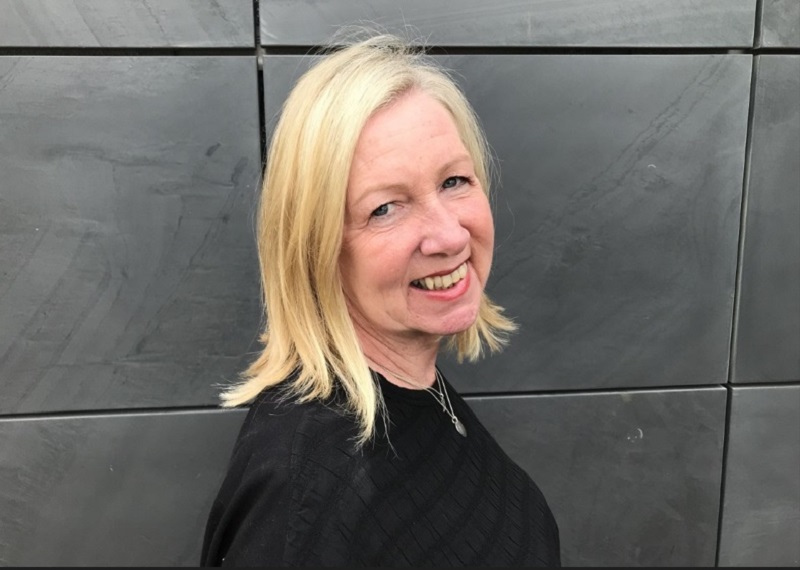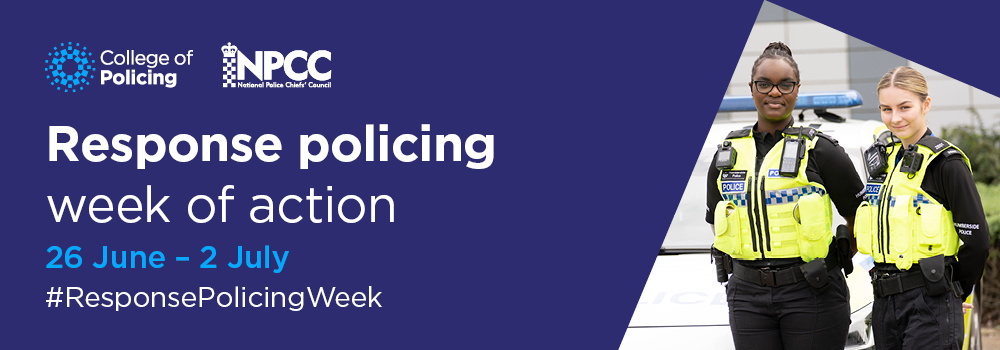Belinda Goodwin, National Board member and Wellbeing lead, talks about the importance of response policing and recounts a memorable incident she responded to as a young Met response officer.
A JOB LIKE NO OTHER
What does this term mean??
Response Policing Week of Action. This sounds great doesn’t it?! But what is it about response policing that needs a week of action and what gives it the moniker, a job like no other?
To kick off our support for Response Policing Week I want to talk about some of my experience as a response officer, what makes this particular role in policing so unique, and acknowledge the risks and the trauma response officers are exposed to on a daily basis.
Response officers are on the frontline of policing; they are the public face of policing, and the role represents the gateway to a career in policing – three hugely important factors that are often overlooked and taken for granted.
As the Wellbeing lead for the PFEW for the last five years, we have been focusing on four areas of wellbeing and applying that focus to our members and what this means for them. We have lots of work going on within mental health, physical health, financial health and general health, that will have a direct impact on our members now and in the future, but why is this so important, especially for response officers?
I have always said that we do a job like no other. It’s not about pitting policing against other blue light emergency services - we all perform lifesaving roles, but it’s the remit of what we do that singles us out as police officers and servants of the crown.
As a police officer our main role is to protect the public and uphold the law that is legislated in parliament. This is only one sentence, but the implication of this sentence is huge, and comes with significant responsibility for a police officer.
To protect the public at all times, means that we have to be proactive as well as reactive. This is why we patrol, on foot and in vehicles, keeping an eye on our communities so that we can prevent crime before it happens and with luck, prevent the public becoming victims of crime. No other emergency service is proactive in this way; for example, firefighters do not patrol the streets looking for fires.
Response officers are the first on scene to 999 calls. Most are emergency incidents, often life-threatening, that require a response as quickly as possible. If it’s a call that requires an ambulance also, it is still the police response officer who is first on scene and the first to administer or start the lifesaving treatment for the victim or the injured. But as a police officer it is also key that whilst doing this we simultaneously maintain and enforce the law. This duality of role is not something that other emergency service responders are expected to maintain.
There was an incident I attended as a response officer that really stands out as we had to fill both roles, that of lifesaver and that of law enforcer, all at the same time.
It was a domestic and the offender had assaulted his mother. She had an arterial bleed in her foot but due to the violent behaviour of the offender the paramedics were keeping back, rightly so. The offender was berserk and arming himself with anything to hand. The victim was bleeding out, so my colleague went straight to her whilst I dealt with the offender, who was huge and angry.
He was irate and shouting at his mother and trying to get at her. We identified the injury as an arterial bleed and needed to apply pressure straight away. I had to keep the offender at arm’s length whilst trying to put one hand on the bleed whilst my colleague got the medical kit. One of my arms was outstretched holding back the offender, the other hand applying pressure to an arterial bleed.
Once we were confident that we temporarily stemmed the flow of blood, I could then concentrate on the offender, try to calm him down, wait for backup and then make the arrest for an assault.
This was a complex incident, but by no means unique, it’s one that response police officers are confronted with daily; we are first aiders, life savers and enforcers of the law, all at the same time.
We are the only emergency service that is required to work through the night, without the possibility of rest or a power nap. We are out patrolling communities and answering emergency calls 24/7, which is right, but there needs to be a balance and a first step towards this is acknowledging and recognising the unique role of the response officer.
Being a police officer in the 21st century has become ever more challenging, and response is where we are most impacted. We are expected to perform emergency lifesaving treatment, we attend more mental health incidents than ever, we are dealing with more children than ever, we run into burning buildings to save lives, we go into water to save lives, all the while enforcing the law at the same time.
The continuous exposure to trauma is relentless, the adrenalin you feel when going to a call that has violence attached, even when you have just had to sit with a family to tell them that a loved one has died; the mixed emotions that constantly turn on and off when dealing with complex situations and making life saving decisions in a split-second, coupled with having to remove people’s liberty when making an arrest… this all takes its toll. It is no wonder we have seen a significant rise in mental ill-health and the resulting sick leave; we know more officers are resorting to self-medicating as a coping mechanism and piled on top of this are all the pressures of home life for which there is little respite as leave days are cancelled due to low officer numbers. But we are still out there, day-in and day-out, doing this job like no other ….
As the wellbeing lead for the PFEW and in support of Response Policing Week, I thought that it was important to highlight why I think that being a police officer means doing a job like no other, and why it is ever more important that this is reflected in our pay and conditions now and in the future.















